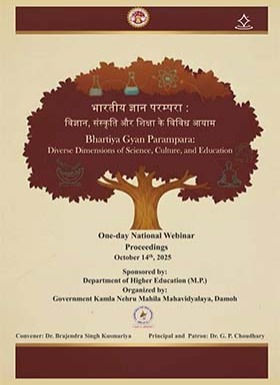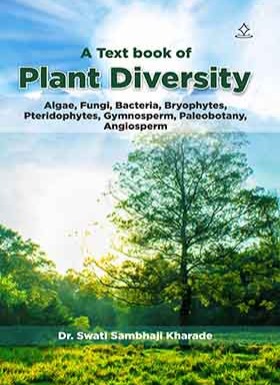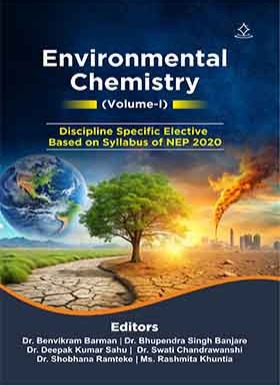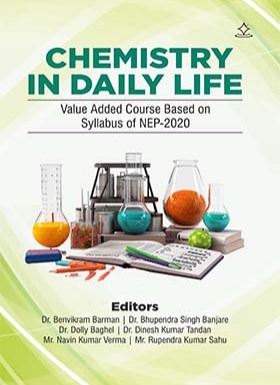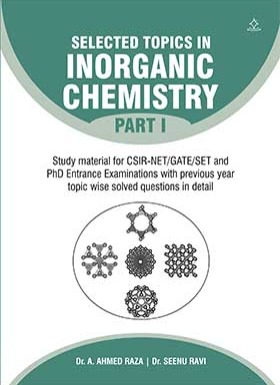


ISBN : 978-81-19908-59-2
Category : Academic
Catalogue : Mathematics and Science
ID : SB20756
Selected Topics in Inorganic Chemistry - Part I
Study material for CSIR-NET/GATE/SET and PhD Entrance Examinations with previous year topic wise solved questions in detail
Dr. A. AHMED RAZA & Dr. SEENU RAVI
Paperback
800.00
e Book
450.00
Pages : 425
Language : English
About Book
This book is for the postgraduate students of chemistry aspiring to crack competitive examinations such as CSIR-NET, GATE, SLET/SET and PhD entrance examinations. Presently, admission to PhD programs in premier institutions like IITs, NITs, CSIR laboratories, central universities and state universities is based on either NET/GATE certificate or PhD entrance examinations. Further, the minimum eligibility criteria laid by UGC for the direct recruitment of Assistant Professors in the higher educational institutions is a postgraduate degree with NET/SLET/SET certificate. Thus, the students are bound to pass these examinations to pursue a bright career either in research or in academic teaching. The cut off for qualifying these exams is 40 to 50%. However, the qualifying percentage of the candidates appearing for these examinations is around 5% only. Therefore, an attempt has been made by authors to develop study material pertaining to the syllabus of these exams along with the solved problems from the previous year question papers which will guide the students to qualify easily. This book focuses only on the selected topics in Inorganic Chemistry. The syllabus of Inorganic Chemistry for the competitive examinations has twelve topics. The first six topics viz., chemical periodicity, chemical bonding, acid base concept, main group elements, d-block elements and coordination chemistry, f-block elements have been covered in the present Part-I book. The remaining six topics will be discussed in the Part-II of this book. To explain the concepts, only the necessary points have been discussed in this text which will greatly save the time of the students contrary to the standard text books where the contents are elaborate and detail. The figures and tabular columns provide explanation, data and better understanding to the reader. More than 550 inorganic chemistry questions from June’ 2011 to June’ 2023 of CSIR-NET chemical sciences, 2000 to 2023 of Gate chemistry and some
Customer Reviews

